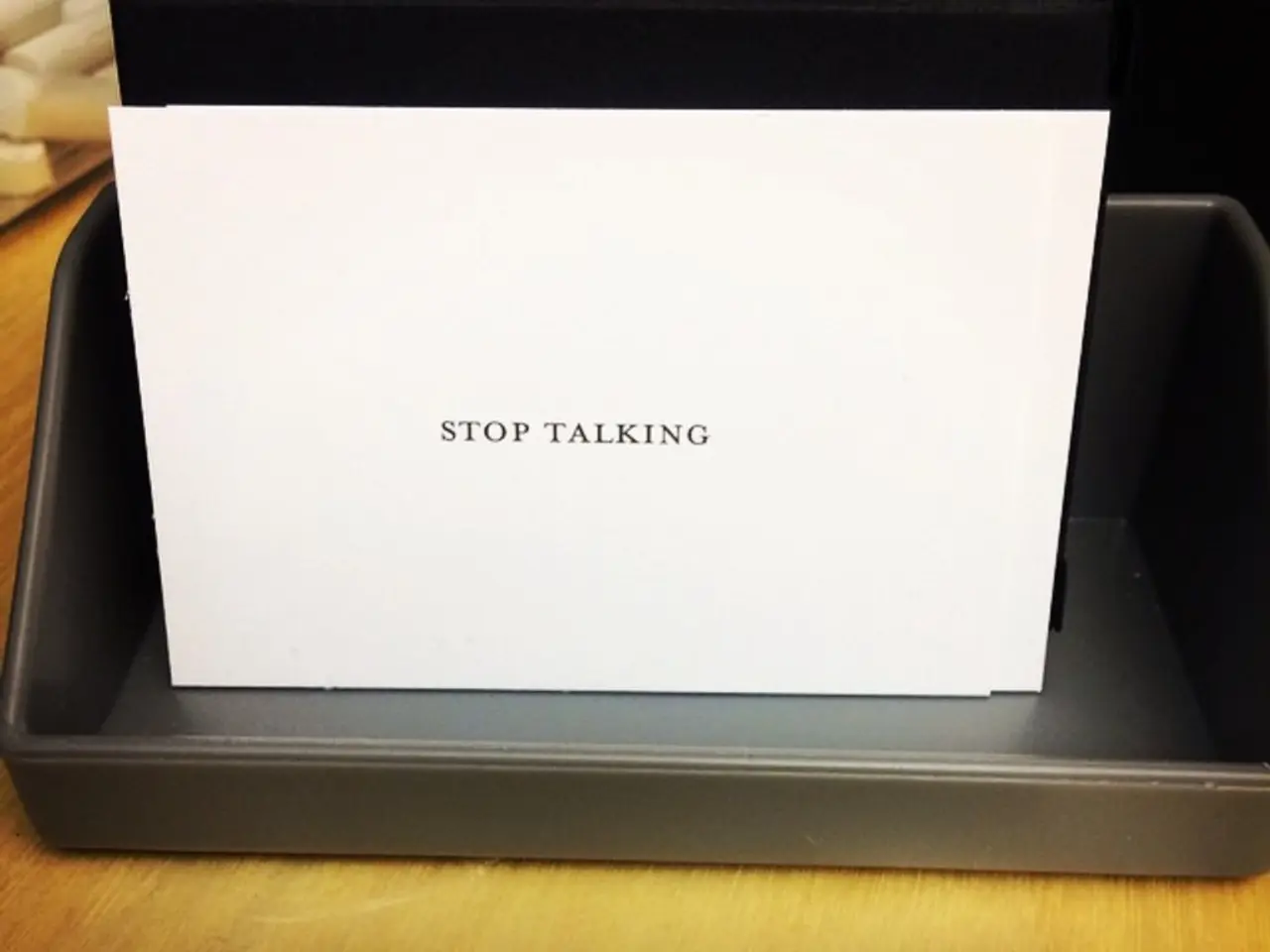Identifying and Managing Lack of Emotional Awareness
In our daily lives, understanding and managing emotions is crucial for building strong relationships and navigating challenging situations. Here's a guide to help identify low emotional intelligence (EI) and strategies for improvement.
Identifying Low Emotional Intelligence (EI)
Identifying low EI in individuals and relationships can be achieved by observing difficulties in accurately perceiving and understanding emotions, poor self-awareness, struggles with managing emotions, and weak empathy or communication skills. Observers can rate EI by watching behaviours such as emotional expression and responses to social situations, and tests like "Reading the Mind Through the Eyes" can objectively assess emotion recognition abilities.
Improving Low EI
To improve low EI, focus on developing key emotional skills through practical strategies.
- Increase self-awareness: Expand your emotional vocabulary, naming specific emotions rather than general terms. Journaling can enhance emotional clarity when done constructively.
- Practice self-regulation: Learn to pause before reacting, using mindfulness or self-compassion techniques to manage challenging emotions in situations like dating or conflicts.
- Enhance empathy and understanding: Actively try to perceive others' emotions accurately, which can be trained through exercises and mindful listening.
- Improve communication: Practice assertiveness, negotiate conflicts calmly, and make emotional check-ins habitual in relationships to maintain connection.
- Use ability-based assessments: The MSCEIT 2 (Mayer-Salovey-Caruso Emotional Intelligence Test) measures perceiving, connecting, understanding, and managing emotions, providing an objective sense of one's EI strengths and weaknesses.
In relationships, building EI involves ongoing work like effective communication, empathy, conflict navigation, and emotional intimacy maintenance. Practicing these consistently leads to stronger emotional bonds and better handling of relationship challenges.
Encouraging Change
Encouraging change in a person's behaviour, such as strategies for stress management, can help improve their EI. Listening to and engaging with a person with low EI can help keep them calm. Practicing active listening and eye contact can make others feel heard and valued, fostering better communication.
Developing Social Skills
Engaging in activities like mindfulness, meditation, and yoga can improve emotional regulation skills. Seek feedback from colleagues or loved ones to gain valuable insights about oneself. People with low EI may find it difficult to maintain personal relationships, so focusing on social and interpersonal skills can help bridge this gap.
Key Components of EI
The five key components of EI, as identified by psychologist and writer Daniel Goleman, are self-awareness, self-regulation, empathy, social and interpersonal skills, and motivation. Pausing to reflect before reacting to an emotional situation can help manage responses more effectively. Focusing on facts rather than emotions can help avoid confusion when communicating with a person with low EI.
In conclusion, improving low EI involves a structured focus on emotional awareness, regulation, empathy, and practical communication backed by tests and reflective practices. By implementing these strategies, individuals and relationships can foster stronger emotional bonds and better handle challenging situations.
- Recognizing low emotional intelligence (EI) in individuals and relationships requires observation of difficulties in identifying emotions, self-awareness, emotional management, and empathy or communication skills.
- To improve low EI, one can focus on developing key emotional skills through self-awareness, self-regulation, empathy enhancement, communication improvement, and continuous effort in relationship building.
- Social and interpersonal skills, such as active listening, eye contact, and feedback-seeking, are essential in bridging the gap for those with low EI and fostering better communication.
- Engaging in activities like mindfulness, meditation, and yoga can help improve emotional regulation, while having a well-rounded understanding of mental health and emotional intelligence is crucial in our health-and-wellness and social-behavioral science.




